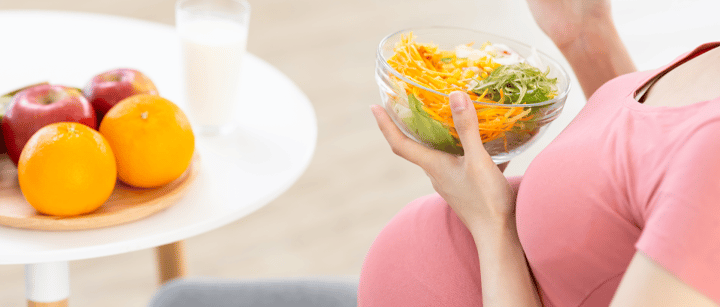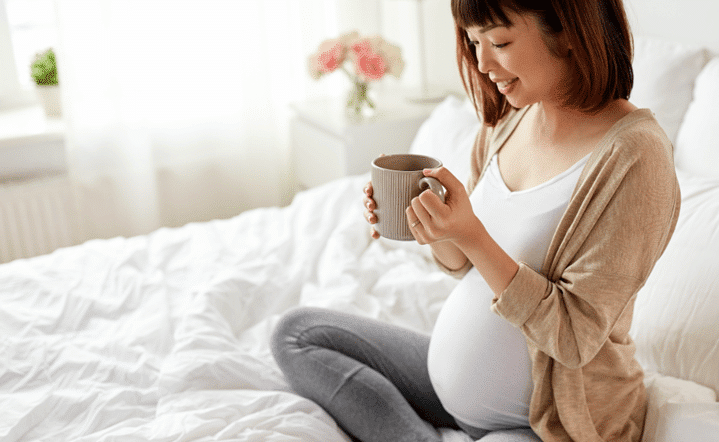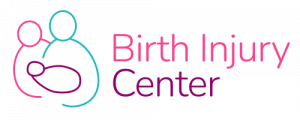What to Avoid While Pregnant
Pregnancy is a wonderful time of growth, anticipation, and development for you and your baby. Unfortunately, certain food you love can be harmful to your growing child; Your morning cup of coffee, soft cheese and seafood can potentially be dangerous.
Home > What to Avoid While Pregnant
- Last Updated Date: February 5, 2026
You need to reconsider your meals, as everything from undercooked meats like steak to unpasteurized dairy can be potentially harmful. Knowing what to avoid eating while pregnant as well as the medications and activities you should steer clear of can give you and your baby the best chance for a healthy delivery.
No Smoking and Drinking
It should go without saying that both smoking and drinking alcohol are unhealthy habits. In particular, alcohol can cause low birth weight among many other developmental disabilities.
Why Are Certain Foods Dangerous During Pregnancy?
Your baby is linked to you through the placenta and umbilical cord. Everything you eat, they will end up eating in a manner of speaking. Since babies’ immune systems aren’t as robust as adults’, minor bugs introduced through food can be extremely dangerous.
Some germs that can cause serious damage to a developing baby are:

Salmonella

Toxoplasmosis

Listeria

E. coli
Toxoplasmosis – Toxiplasma gondii is a parasite found in many food sources, as well as cat litter boxes and other areas where cats may leave their waste.
Listeria – Listeria monocytogenes (Lm) is a harmful germ found in many foods, including ready-to-eat refrigerated foods like deli meats, unpasteurized (raw) milk, and such foods as soft cheeses made with unpasteurized milk. Lm can lead to a disease called listeriosis.
Salmonella, and E. coli – Other organisms that can cause food poisoning, including Salmonella, Campylobacter, and E. Coli, also may lead to health complications for pregnant women, unborn babies, and newborns.
When disease-causing bacteria, viruses, or parasites (germs) contaminate food, they can trigger foodborne illness, often called food poisoning. While the food supply in the United States is among the safest in the world, it can still be a source of infection. Foodborne illness is unpleasant for adults and children, but it can be potentially fatal to a developing fetus. While certain foods carry a small risk of foodborne illness –deli meats for instance – the risk is usually low for adults. Women who are pregnant can transmit these bacteria to their fetuses, which is a much bigger problem.
Not all risk foods are the same level of problematic either. Drinking coffee isn’t the same as drinking alcohol, for instance. Some foods are inherently higher risk than others, and understanding where everything falls is the key to having a healthy pregnancy.
- Last Updated Date: February 5, 2026
What Foods to Avoid During Pregnancy
The biggest concern surrounding food during pregnancy is how well-cooked it is. Foods that don’t require cooking are fine in most situations. Bread, cereal, pasteurized dairy are all reasonable to eat.
Meat on the other hand is tricky and needs to be cooked to 165 degrees Fahrenheit in order to completely kill any dangerous pathogens. This is true for red meat and pork specifically. For chicken on the bone, particularly dark meat like thighs and drumsticks, the meat should be cooked to 175 degrees to ensure pathogens in the bone are killed as well.
Undercooked Meat
While we expect steaks, chicken, and pork to be cooked fully before eating, there are a number of meat products that are intentionally served undercooked, raw, or cooked and served chilled later:
- Deli meats
- Steak tartare and other raw meat dishes
- Meat spreads like ham or chicken salad
- Pate
- Hot dogs
Deli meats and other similar cooked and chilled meats are prime culprits for listeriosis. This infection typically causes diarrhea and fever, like many other forms of infectious gastroenteritis. The difference is that in pregnant women and those with weakened immune systems, there is a greater chance of developing invasive listeriosis.
Invasive listeriosis is a systemic infection causing muscle aches, fatigue, drops in blood pressure, confusion, joint pain, and a host of other symptoms. Additionally, invasive listeriosis can cause symptoms weeks after eating the contaminated food.
For pregnant women, listeria infection can lead to miscarriage, stillbirth, or infection of the fetus. Hot dogs carry the same risk as deli meats and meat spreads and so should also be avoided unless thoroughly cooked.
Raw Eggs
Raw eggs also carry a significant risk unless they’re pasteurized, but even then, undercooked eggs and egg products should be avoided. This includes eggnog, ice cream made with eggs (often called frozen custard), and egg preparations that don’t fully cook the egg whites, like sunny-side up.
Unfortunately, this raw egg ban includes cookie dough as well. The FDA recommends that nobody eat raw cookie dough, but people who aren’t pregnant can be more adventurous. Remember, bacteria might not hurt you, but they can be disastrous for your baby.
Finally, avoid condiments that include raw or undercooked eggs, like hollandaise sauce, Caesar dressing, or mayonnaise.
The Centers for Disease Control and Prevention calls for fully cooking any meat or egg product before eating in pregnant or immune-compromised people. As hard as it might be to give up deli meats and other food preparations like this, it’s better to err on the side of caution.
Seafood to Avoid While Pregnant
Though some seafood is all right in small amounts while pregnant, undercooked and raw fish should be avoided. This includes but is not limited to:
- Sushi and sashimi
- Raw oysters
- Smoked seafood like salmon or eel
- Lox
You should also avoid large, fatty ocean fish like swordfish, tuna steak, shark, king mackerel, and tilefish due to high levels of mercury. As large predatory fish age, they accumulate higher amounts of mercury, and that goes straight into your body when you eat them. Mercury accumulates in the placenta and can cause birth defects.
Small, cold-water fish like bristling and sardines can be eaten, as can freshwater fish like walleye or catfish as long as they are all thoroughly cooked. The March of Dimes recommends avoiding any high mercury fish for most people but especially during pregnancy.
Certain types of shellfish like clams, mussels, and oysters harbor a greater risk of harmful bacteria, even when cooked. Pregnant women should avoid them entirely, especially during the first trimester.
Unpasteurized Dairy Products
Fresh cheese is a true pleasure, and it’s typically quite safe, but for pregnant women, it could be dangerous. Pasteurization kills harmful bacteria by heating the foods. This makes them safe to consume but doesn’t cook them or change their flavor and texture.
Examples of common unpasteurized milk products include soft cheeses like brie, feta, and camembert. These creamy, soft cheeses often cannot be fully pasteurized without ruining the texture that is their trademark. Mexican-style cheese like queso fresco or queso blanco should be avoided as well unless you know they are made with pasteurized dairy.
As long as the cheese you are eating is made from pasteurized dairy products, you should be quite safe.
Fruit and Vegetable Safety While Pregnant
Most fruits and vegetables are safe to eat while pregnant, with a few outliers. Raw sprouts can cause food poisoning in healthy adults, so they should be completely avoided while pregnant. Additionally, fruits and vegetables should be washed in a 4:1 water/vinegar solution to ensure they are clean. This is especially true of avocados, which can transmit listeria on their skin, so wash them well before cutting into them.


Drinks to Avoid When You're Pregnant
Coffee is one of the hardest drinks to give up while pregnant, but if you crave the taste and ritual of a cup of morning brew, decaf is your best bet. The caffeine in coffee is what can be damaging to unborn children, so the ban on coffee extends to any kind of caffeinated drinks, including soda and energy drinks.
Energy drinks in particular can be disastrous for you and your baby. They include tremendous amounts of caffeine and sugar as well as unhealthy dyes, none of which you want in your body.
Tea is fine to drink as long as there is no caffeine—this includes herbal teas like chamomile or peppermint. In fact, peppermint or ginger teas can be useful in aiding morning sickness.
Unpasteurized juice is another concern and should be avoided. One of the most common unpasteurized juices is apple cider, but it can carry E. coli so it definitely should not be consumed.
Medications to Avoid During Pregnancy
As restrictive as these food lists are, medications need to be even more closely monitored. The first step is to speak with your OB-GYN about medicines you take regularly, including supplements. Your doctor will be able to tell you which you can continue and which medications you need to avoid entirely.
NSAIDS
Nonsteroidal anti-inflammatory drugs are one of the most common pain relievers on the market. A common NSAID is Aleve and its generic counterparts. NSAID drugs are particularly dangerous during the first trimester of pregnancy, though they can be used in small amounts after the second semester, up until about 32 weeks.
Acne Medications
Isotretinoin and spironolactone, which are two of the biggest prescription acne medications, are highly dangerous for developing babies. Since both of these medications can cause birth defects, it’s critical you stop taking them if you’re trying to become or are pregnant. Your doctor should have some options to treat your acne that aren’t dangerous to your baby.
Mental Health Medication
SSRIs and other treatments for anxiety or depression are typically lower risks, especially when compared to other treatments. These medicines also take a long time to get used to and carry significant long-term benefits that need to be weighed against their impact on your pregnancy. In particular, if not taking mental health medication is going to cause severe impacts on your life, then they’re worth the negligible risk.
Some drugs that treat specific psychiatric disorders are potentially more dangerous to a developing baby, and so you need to speak with your doctor about how to proceed.
More than anything, never stop taking antidepressants or anti-anxiety medications without consulting with your doctor. To suddenly stop taking these medications can cause a severe reaction, from “brain zaps” to mood swings, to severe side effects like seizures, coma, or death. Withdrawal can be severe, so it cannot be overstated that you should never quit these drugs cold turkey.
Over-the-Counter Medication
The best advice is to speak with your doctor regarding common OTC medications that you take. Anything from antidiarrheal medication to antihistamines or cough syrup can have an impact on your pregnancy. Though many OTC drugs are mild and not dangerous, some can be, and some are dangerous in the presence of other drugs. Your doctor will know which is safe for you.
Antibiotics
Like psychiatric medication, the necessity of taking antibiotics will need to be weighed against the perceived risk to your fetus. Tetracycline antibiotics are too dangerous in most cases for pregnant women to take, but penicillin is largely regarded as okay.
For scenarios where an infection poses a greater risk to you and your child, antibiotics will probably be necessary. Your doctor will provide the one with the least concern and the most benefit.
Supplements
Supplements are a great way to boost your health, and prenatals are an example of a beneficial supplement before and during pregnancy. Supplements like vitamin D3 and fish oil are largely regarded as safe. Others, however, like milk thistle and herbal remedies are not okay to take while pregnant.
Provide your OBGYN with a list of your supplements, and they will be able to tell you which to stop taking.
Activities to Avoid While Pregnant
Many activities are dangerous while pregnant, and some that you might think are dangerous are perfectly fine. For instance, exercise is not only safe. It’s a great choice to keep you healthy and active while pregnant if you do the right exercises. Yoga is good, but hot yoga is not because the increased temperature can stress you and your baby.
Light weightlifting is good, as it helps your body stay insulin sensitive and injury resistant, but lifting heavy weights can be dangerous. Some activities to avoid are:
- SCUBA diving
- Strenuous lifting
- Tattoos
- Thrill rides like roller coasters
- Piercings
- Dental procedures
Even dental cleanings carry some risk to your baby, as they can introduce mouth bacteria into the bloodstream. It’s best to wait until after you deliver unless the procedure is emergent.
What Exercises to Avoid While Pregnant
As we stated, hot yoga is simply too hot for you and your baby during pregnancy. The increased blood volume pumping around your body can strain your heart and you can get overheated very quickly. Avoid strenuous lifting as well, and though running is okay, be mindful of the impact of running on your knees. Don’t push yourself to pain—if it hurts (in a bad way), dial back your exertion.
Healthy Mother, Healthy Baby
Keeping your doctor aware of the medications and supplements you take should be your first step when you find out you are pregnant or are trying to get pregnant. Avoid NSAIDs, prescription acne medications, and find out what OTC drugs you can keep taking.

Be extremely mindful of the meat you eat, and avoid anything undercooked or raw. The CDC recommends cooking meat to 165 degrees, at least for pregnant women, and avoiding deli meats, hot dogs, and meat spreads.
Avoid alcohol, coffee, energy drinks, and other sources of caffeine. Be mindful of food safety, in general, to avoid getting food poisoning, which is far more dangerous in pregnant women than in other members of the population.
Soft, unpasteurized cheeses like Roquefort, blue, feta, and brie should be avoided. Additionally, avoid foods made with undercooked or raw eggs, and never eat raw sprouts. Wash your produce well, and unfortunately, don’t eat raw cookie dough.
Knowing what things to avoid when pregnant might sound laborious, but this information is the best method for keeping you and your baby safe.
Written by:
Birth Injury Center Team
The Birth Injury Center aims to create informational web content and guides to help women and their families seeking support and guidance for birth injuries caused by medical negligence. All of the content published across The Birth Injury Center website has been thoroughly investigated and approved by medical expert Natalie Speer, RNC-OB.
